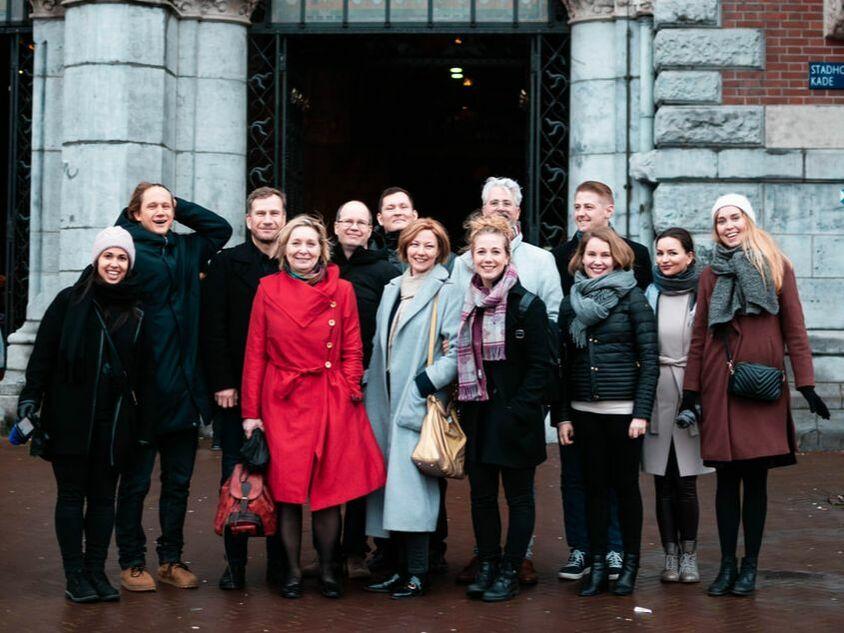
The Netherlands is known as the merchant nation of the world. Starting with the Dutch East India Company (VOC) from the 17th century, the Dutch have had a mindset of doing business internationally. This shows even in the current startup ecosystem, where all speak great English, and international companies are more than welcomed to start wearing clogs and buying tulips. As Brexit creates uncertainty for the entrepreneurs, Amsterdam is said to be one of the best options for startups to relocate.
From the angel perspective, there’re a lot of business opportunities, which were discussed on the first day of the trip. According to MatchingWings, co-organizer of the trip, in 2018 52 startup investment rounds were filled with business angels investing 44,7MEUR. This means that the average round and ticket sizes are higher than in Finland, where median ticket is 18 000€ and average 42 000€. Several other deals were made, as well, with co investing with a VC or using crowdfunding platforms.
According to EBAN statistics, there are 1200 angels on the visible market in the Netherlands. Government wants to support the creation of new professional business angels, especially those who have successfully exited their own startups. Two new business angels can get a special scheme loan from the government if they launch an angel fund with equal amount of capital. It’s up to 1MEUR with a special pay-back structure with three time periods:
Period A: 80% to angel and 20% to government (of revenue)
Period B: 50% 50% when government gets their money back (of revenue)
Period C: 80% to angel, 20% to government (of revenue)
Thus, there’s a lot of coinvestor potential, and a lot of interest to syndicate with international angels, as well. Already international investors can get a residence permit quite easily, but doing straight investments from a foreign country is not that easy. As MatchingWings cofounder Robert Weaver puts it: “One of our main goals is to professionalize our angels to make them cross-border ready. We want to map all the fiscal aspects in Benelux countries to lower to borders even further.” Benelux countries have the same issues as the New Nordic market: although culturally and geographically close, legislation and taxation in each country is very different. Local angel networks, MatchingWings especially, are working to change that scene.
What are the benefits for startups, then? In addition to the low language barrier, the Netherlands has many projects and organizations helping startups soft-land into the country, such as Startup Delta, and local Regional Development companies, who help startups outside the Amsterdam metropolitan area. They describe their soft-landing policies with a special term of ‘Orange Carpet’. This colorful runway includes a startup visa for foreign founders: incubators and accelerators help a lot of founders to get a visa. Priority sectors are currently healthtech, food, ICT, and energy, but all startups are welcomed to open new HQ in the Netherlands. Opening an office in the Netherlands has clear benefits: with its location in the central spot of Europe, it makes it easier to source customers from other European countries. As Marc Wullings put it in his keynote at the end of our trip: “In the startup roadmap, Finland is the top tech incubator country, where the Netherlands is the best test market.”